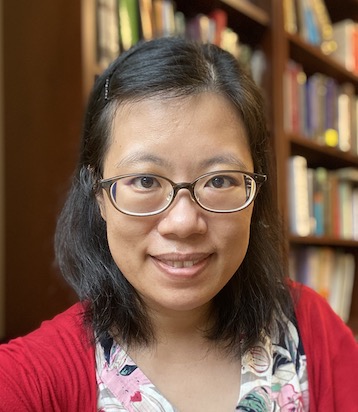Bilin Zhuang

Assistant Professor of Chemistry
B.A., Wellesley College
PhD, California Institute of Technology
My group uses and develops a range of theoretical and simulation tools to study how molecules in a liquid organize themselves. For example, we try to understand why water is so “weird” — while most materials expand on heating, water becomes denser when you heat it between 0 to 4 degrees Celsius! We also look at how molecules interact in water and other solvents and how molecules in a liquid organize themselves despite the messiness of a liquid environment. Our group typically involves students from a wide range of disciplines and backgrounds so that we can look at the questions from different perspectives. In the past years, my group has hosted chemists and biologists investigating how large molecules like proteins and polyelectrolytes interact in a solution, physicists developing statistical measures to characterize molecular structures and thermodynamics theories for describing the molecular organization in liquids, computer scientists developing machine-learning algorithms to decipher the order in the liquid’s messy molecular organization and code useful Python modules for computational chemistry, and many more — my group has even hosted historians and economists! If you are interested, please get in touch!
My goal in teaching is to make physical and computational chemistry fun and accessible for students from various backgrounds. I believe in introducing diverse exercises and experiences to engage students in the classroom. For example, I have introduced simulations into statistical thermodynamics to make the abstract concept of entropy more concrete. I have asked the students in quantum chemistry to pretend that they were Schrodinger writing a letter to Bohr to communicate his discoveries on hydrogen’s electron orbitals. I have also taught science through cooking, a delicious way to teach soft-matter sciences! Over the years, I have learned from students’ suggestions to improve teaching, and I always welcome discussions to make the classroom more exciting and inclusive.